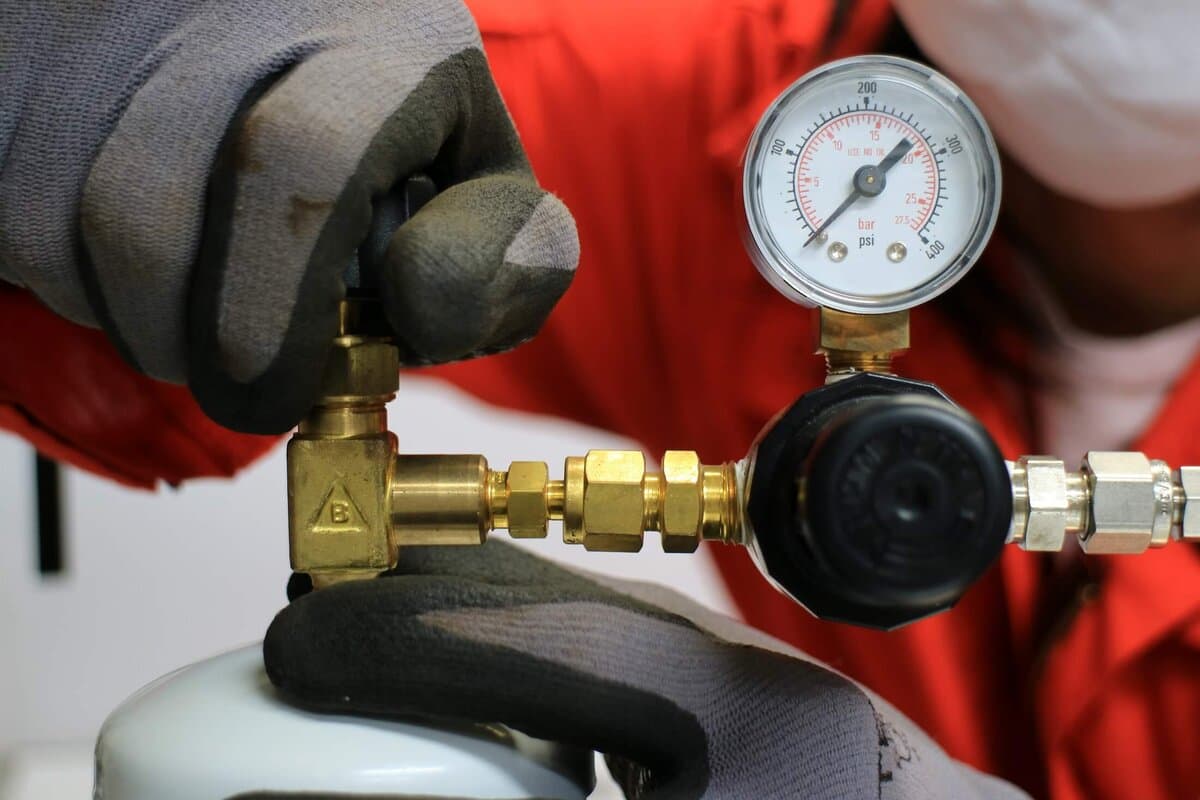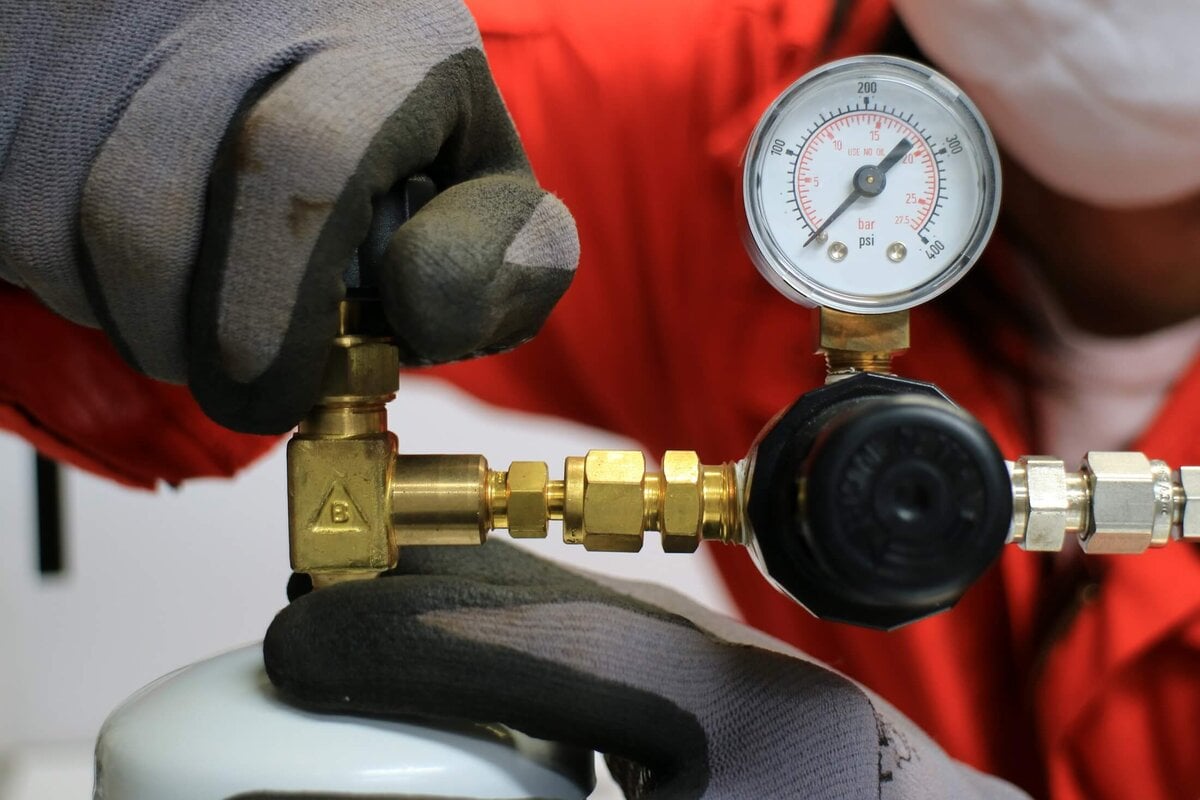
LPG Gas Plumbing & Cylinder Installations Sydney
Professional LPG gas plumbing services for homes, rural properties, caravans, RVs, food trucks, and commercial applications. Panther Plumbing Group delivers safe cylinder installations, changeover systems, bulk tanks, and appliance conversions across Sydney with full compliance certification.
Complete LPG Solutions
Safe Cylinder Systems
Single, dual, and manifold cylinder installations with automatic changeover valves
Mobile & Off-Grid
Caravan, RV, boat, and tiny home LPG systems for portable energy
Commercial Solutions
Food trucks, event catering, temporary sites with council-compliant setups
Rural Properties
Whole-house LPG installations for properties without natural gas access
Professional LPG Gas Installations For Every Application
Whether you're powering a rural property, converting a food truck, equipping a caravan, or establishing off-grid energy supply, our licensed gas fitters deliver safe, compliant LPG cylinder systems tailored to your specific requirements. We handle everything from single-bottle portable setups to dual-cylinder automatic changeover systems and large bulk tank installations—complete with pressure regulation, leak testing, and full certification documentation for Australian Standards compliance.
Cylinder System Design
We calculate your total gas load requirements and design the optimal LPG system—single, dual, or manifold cylinder configurations with appropriate capacity, automatic changeover valves, and proper pressure regulation for your appliances.
Mobile & Rural Expertise
Specialists in food truck, caravan, RV, and off-grid rural property LPG installations. We understand mobile application requirements, council compliance for commercial vehicles, and remote property energy independence solutions.
Appliance Conversion
Convert existing natural gas appliances to LPG using manufacturer-approved conversion kits. We replace burner jets, adjust regulators, recalibrate flame settings, and certify converted appliances for safe LPG operation.
Supplier Coordination
After installation, we connect you with reliable LPG suppliers for cylinder purchase or rental, arrange delivery schedules, and provide guidance on refill options—ensuring your ongoing energy supply is seamless and cost-effective.
Cylinder Configurations For Every Application
From portable bottles to permanent bulk tanks—we install the right LPG system for your needs
Single Cylinder Systems
Ideal for caravans, small cabins, BBQ setups, and temporary applications. We install 9kg, 15kg, or 45kg cylinders with appropriate regulators, secure mounting brackets, and compliant pipework. Perfect for seasonal use or backup energy supply with straightforward bottle exchanges.
Dual Cylinder With Changeover
Two-bottle systems with automatic changeover valves ensure uninterrupted LPG supply. When one cylinder empties, the system automatically switches to the reserve bottle and signals for refill. Ideal for homes, holiday properties, and permanent installations requiring continuous supply.
Manifold Multi-Cylinder Systems
Commercial and high-demand applications benefit from manifold systems connecting 3–8 cylinders. Restaurants, food trucks, industrial heating, and large properties use manifold setups for extended runtime between refills. Includes automatic switchover and low-gas alarms.
Bulk LPG Tanks (90kg–210kg+)
Permanent bulk tanks provide the most economical LPG supply for rural homes and commercial properties. Installed above-ground or underground with supplier refill access. Capacity from 90kg to multi-tonne installations. Ideal for whole-house heating, cooking, and hot water in off-grid locations.
Mobile & Portable Setups
Food trucks, catering vans, market stalls, and event equipment require certified mobile LPG installations. We install quick-disconnect fittings, vibration-resistant brackets, compliant hose assemblies, and provide documentation for council permits and health department approvals.
Caravan & RV Systems
Recreational vehicles need lightweight, compact LPG systems with dual-appliance capability (cooking and heating). We install gas lockers, external cylinder mounts, internal pipework, regulator upgrades, and safety shutoffs that comply with caravan certification requirements.
Why Choose LPG Over Natural Gas?
LPG offers unique advantages for properties and applications where natural gas isn't available or practical
Available Anywhere
LPG doesn't require pipeline connection, making it ideal for rural properties, off-grid homes, remote locations, and areas where natural gas infrastructure doesn't exist. Cylinders can be delivered and installed anywhere in Sydney and regional NSW.
Portable & Mobile
LPG cylinders enable energy supply for mobile applications including caravans, RVs, boats, food trucks, market stalls, temporary event setups, and construction sites. Quick disconnects allow easy bottle changes and portability between locations.
Higher Energy Density
LPG contains approximately 2.5 times more energy per cubic metre than natural gas, resulting in hotter flame temperatures and more efficient appliance performance—particularly beneficial for commercial cooking and outdoor heating applications.
No Connection Fees
Unlike natural gas which requires expensive pipeline connection and meter installation (often $2,000–$5,000+), LPG cylinder systems have minimal upfront infrastructure costs. Pay only for installation and gas consumption without ongoing connection charges.
Energy Independence
LPG provides energy security independent of grid infrastructure. Ideal for bushfire-prone areas where natural gas may be shut off during emergency periods, or for properties seeking self-sufficiency with solar + LPG hybrid systems.
Quick Installation
LPG systems can be installed and commissioned within 1–2 days (depending on complexity), compared to weeks or months waiting for natural gas connection approval and infrastructure installation from network providers.
Flexible Scalability
Start with a small single-cylinder system and easily expand to dual bottles, manifold configurations, or bulk tanks as your energy needs grow. Add cylinders or upgrade capacity without major infrastructure changes or approvals.
Backup Energy Option
Many homes use LPG as a backup to natural gas or electricity, ensuring continued operation of critical appliances (cooking, heating, hot water) during power outages or gas supply interruptions—essential for aged care, medical equipment, and business continuity.
Choosing The Right LPG Cylinder Size
Match your cylinder capacity to appliance load and refill frequency preferences
9kg Cylinder
15kg Cylinder
45kg Cylinder
90kg Cylinder
210kg Cylinder
Bulk Tanks (500kg+)
Usage Calculation Guidelines
Cooking Only: Average household uses 10–15kg LPG per month (dual 45kg cylinders provide 5–7 months supply)
Cooking + Hot Water: Increase to 20–30kg per month (dual 45kg cylinders provide 2–4 months)
Cooking + Hot Water + Heating: Winter consumption can reach 40–60kg per month (90kg or bulk tank recommended)
Commercial/Food Truck: Heavy daily use requires 15–25kg per week (manifold system or weekly bottle exchanges)
Our team calculates appliance load and recommends appropriate cylinder size and configuration during site assessment.
Professional LPG System Installation In 8 Steps
From site assessment to certification—we handle every aspect of your LPG installation
Site Assessment & Design
Our licensed gas fitter visits your property to assess appliance requirements, location constraints, ventilation conditions, and compliance factors. We calculate total gas load (in MJ/hr), determine appropriate cylinder size and quantity, and design the system layout including cylinder placement, pipework routes, and regulator specifications. For food trucks and mobile applications, we review council requirements and provide compliance advice.
Cylinder Placement & Mounting
Cylinders must be located outdoors in well-ventilated areas with specific clearance distances from ignition sources, windows, doors, and property boundaries. We install compliant cylinder stands, wall brackets, or protective cages ensuring secure mounting and protection from vehicle damage. Placement considers refill access, changeover convenience, and protection from weather exposure. Underground bulk tanks require excavation and concrete pad installation.
Regulator & Changeover Valve Setup
First-stage regulators reduce cylinder pressure (800–900 kPa) to low pressure (2.75 kPa) suitable for appliances. Dual-cylinder systems include automatic changeover valves that switch to the reserve bottle when primary empties, with indicator flags signaling refill requirements. We install weather-protected regulator housings, secure all connections with approved fittings, and verify correct pressure delivery throughout the system.
Gas Pipework Installation
We run copper tube or flexible TracPipe from cylinder location to appliances, ensuring pipework is properly sized for gas flow requirements and distance. External pipework is UV-protected and secured with appropriate brackets at regulation spacing. Underground lines are installed in protective conduit with tracer wire. All penetrations through walls or floors are sealed and sleeved to prevent moisture ingress and rodent damage.
Appliance Connection & Conversion
If converting appliances from natural gas to LPG, we replace burner jets with LPG-specific orifices, adjust pressure regulators, and recalibrate flame settings per manufacturer specifications. New LPG appliances are connected with isolation valves and tested for correct operation. BBQs, heaters, cooktops, ovens, and hot water units are commissioned individually with flame pattern inspection and safety feature verification.
Pressure Testing & Leak Detection
Before commissioning, the entire system undergoes nitrogen pressure testing at 1.5× operating pressure for minimum 15 minutes to verify integrity of all connections and pipework. We conduct electronic leak detection and soap-bubble testing on every joint, valve, and appliance connection. Any leaks are rectified immediately and retested until zero-tolerance compliance is achieved.
System Commissioning & Safety Checks
With cylinders connected and charged, we purge air from pipework, light and adjust each appliance, verify correct flame characteristics, test automatic changeover operation (if fitted), check overpressure protection, and ensure all isolation valves function correctly. Emergency shut-off procedures are explained and documented. For commercial installations, we coordinate final inspections with certifying authorities.
Certification & Documentation
Every LPG installation receives a Certificate of Compliance (Form 4) lodged with NSW Fair Trading and provided to you for insurance and property records. We supply operation manuals, appliance conversion documentation (if applicable), changeover instructions, emergency contact details, and LPG supplier information. For commercial and food truck installations, additional council and health department certificates are prepared as required.
Typical Installation Timeframes
LPG Installation Costs Sydney
Upfront pricing for every type of LPG system installation (prices exclude cylinder purchase/rental)
Single Cylinder Setup
Basic single-bottle installation with regulator and pipework
- 9kg–45kg cylinder mounting
- Single-stage regulator
- Up to 5m pipework run
- 1–2 appliance connections
- Leak testing & commissioning
- Compliance certification
Dual Cylinder Auto-Changeover
Permanent dual-bottle system with automatic changeover valve
- Two 45kg cylinders & brackets
- Automatic changeover regulator
- Up to 10m copper pipework
- 2–4 appliance connections
- Full pressure testing
- Certification & documentation
Caravan/RV Installation
Mobile LPG setup for recreational vehicles
- External cylinder mount (9kg–15kg)
- Compact regulator setup
- Internal pipework & appliance connection
- Quick-disconnect fittings
- Safety shut-off valve
- Caravan certification compliant
Rural Whole-House LPG
Complete off-grid property energy solution
- 90kg–210kg bulk cylinder or tank
- Dual-stage pressure regulation
- Whole-house copper pipework
- Multiple appliance connections (cooking, hot water, heating)
- Underground/protected pipe runs
- Full certification & supplier coordination
Commercial/Food Truck
Council-compliant mobile business LPG system
- Manifold cylinder setup (2–4 bottles)
- Commercial-grade regulators
- Vibration-resistant pipework
- Quick-disconnect external connections
- Fire safety compliance
- Council/health dept certification
What's Included In Our LPG Installation Pricing
*Prices exclude LPG cylinders (purchase or rental arranged separately through suppliers). Extra charges apply for difficult access, extensive pipework (>15m), appliance conversions, and regional travel outside Sydney metro.
LPG Installation Case Studies
How we've delivered LPG solutions for diverse Sydney applications
Food Truck LPG System – Penrith Markets
Vietnamese street food operator
New food truck required council-compliant LPG installation for wok burners and fryer with certification for Penrith City Council health department and market stall operator permits.
We installed a 3-cylinder manifold system (45kg bottles) with automatic changeover, vibration-resistant stainless steel pipework, external quick-disconnect for safe bottle exchanges, and fire-rated cabinet mounting. System included low-gas alarm and emergency isolation accessible from serving window.
Client received full compliance certification within 3 days, enabling immediate council approval and market trading. Manifold system provides 2+ weeks operation between bottle changes, minimizing business downtime. Installation passed health department inspection first time.
Rural Property Whole-House Conversion – Duffys Forest
5-acre property, no natural gas available
Northern Beaches acreage property required complete LPG solution for cooking, hot water, and ducted heating after purchasing home with no existing gas infrastructure. Needed reliable year-round supply with minimal refill frequency.
Installed dual 210kg bulk cylinders with automatic changeover system, dual-stage pressure regulation, and 40+ metres of underground copper pipework in protective conduit to house. Connected gas cooktop, wall oven, instantaneous hot water system, and ducted gas heating. Coordinated with Elgas for bulk cylinder supply and regular refill scheduling.
Whole-house energy solution operational within 2 days. Bulk cylinders provide 4–6 months supply before refill (depending on heating use), with automatic changeover ensuring uninterrupted service. Property now has reliable cooking, hot water, and heating year-round without natural gas connection fees (saved ~$4,000).
Caravan Park Permanent Setup – Narrabeen
Permanent caravan resident, holiday park
Client wanted permanent LPG installation for caravan with cooking and heating appliances, replacing portable bottle system that required frequent manual changes. Installation needed to comply with caravan park regulations and maintain portability for occasional moves.
Designed dual 15kg cylinder system with automatic changeover valve, external weatherproof cylinder cage, and quick-disconnect fittings enabling easy removal if caravan relocated. Internal pipework connected to cooktop, oven, and gas heater with individual isolation valves. Full caravan certification provided for park management records.
Dual-cylinder system provides 3–4 months operation between bottle changes (vs. weekly with single portable bottle). Automatic changeover eliminates mid-cooking gas interruptions. Installation approved by park management and certified compliant for insurance purposes. Client can disconnect entire system in <15 minutes if moving caravan.
Restaurant Backup LPG System – Manly
Commercial kitchen with natural gas primary
Beachside restaurant experienced power outages during storms affecting electric extraction and refrigeration. Wanted LPG backup system for cooking equipment to maintain service during outages and provide business continuity insurance.
Installed dual-fuel capability with LPG manifold system (four 45kg cylinders) connected to existing cooktops, grills, and wok burners via changeover valves. System can switch between natural gas and LPG supply within minutes. Included emergency procedure signage and staff training for safe fuel switching during outages.
Restaurant maintained kitchen operations during three subsequent power outages (storms and planned network maintenance), avoiding thousands in lost revenue. Dual-fuel system also provides negotiating leverage with energy suppliers. LPG backup certified for commercial insurance requirements and increased property resilience rating.
LPG Safety Regulations & Best Practices
Understanding cylinder placement, changeover procedures, and emergency protocols
Cylinder Placement Rules
LPG cylinders must be located outdoors in well-ventilated areas. Never install in enclosed spaces, basements, or areas where leaked gas could accumulate.
Minimum 1 metre horizontal clearance from windows, doors, vents, air conditioning units, and other openings. Minimum 3 metres from ignition sources like pilot lights, electrical switchboards.
Cylinders must be protected from vehicle impact using bollards, protective cages, or location away from traffic areas. Consider vandalism protection for accessible public areas.
Install on concrete pad, pavers, or metal stands—never on grass, dirt, or combustible decking. Ensure surface is level to prevent regulator malfunction and safe cylinder orientation.
LPG is heavier than air and accumulates in low points. Avoid depressions, pits, or below-grade locations. Ensure natural cross-ventilation prevents gas pooling.
Display "LPG—No Smoking—No Naked Flames" signs at cylinder location. Mark emergency isolation valve positions clearly for quick identification.
Changeover & Maintenance
Dual-cylinder systems automatically switch to reserve when primary empties. Red/green indicator flags show which cylinder is in use. Replace empty cylinder promptly to maintain backup supply.
1. Turn off isolation valve at empty cylinder. 2. Disconnect regulator or pigtail. 3. Remove empty cylinder. 4. Install full cylinder upright and secure. 5. Connect regulator (hand-tight plus ½ turn with spanner). 6. Soap-test connection before opening valve. 7. Open valve slowly.
After every cylinder change, test connections with soapy water solution (never flame). Bubbles indicate leak—retighten or replace washer if leak persists. Commercial operations should maintain electronic leak detector.
Licensed gas fitter should inspect regulators, hoses, pipework, and appliances annually. Check for corrosion, damage, UV degradation, insect nests, and pressure regulation accuracy. Replace hoses every 5 years minimum.
LPG cylinders require 10-year recertification testing. Suppliers track certification dates—expired cylinders won't be refilled. We coordinate recertification during routine service visits.
LPG vaporization slows in cold weather. Keep cylinders in sunny locations, use vapour-withdrawal cylinders for high-demand applications, and consider cylinder heaters for commercial operations requiring consistent flow in winter.
Emergency Shut-Off Procedures
1. Extinguish all flames immediately. 2. Turn off cylinder valve at bottle. 3. Turn off appliances. 4. Ventilate area—open windows and doors. 5. Do NOT operate electrical switches, phones, or ignition sources. 6. Call gas fitter or emergency services from outside property.
Know location of: 1. Main cylinder isolation valve (at bottle). 2. Appliance isolation valves (near each appliance). 3. Emergency master shutoff (if fitted). Tag valves for quick identification during emergencies.
If fire involves LPG cylinders, evacuate immediately and call Fire & Rescue NSW (000). Do NOT attempt to fight LPG cylinder fires—risk of explosion. Inform responders of cylinder location and size.
Panther Plumbing Group provides 24/7 emergency gas service. If you cannot safely isolate LPG leak or require urgent gas fitting repairs, call 0404 939 121 anytime for immediate licensed assistance.
LPG Supplier Coordination
You can purchase cylinders outright (~$150–$300 depending on size) or rent from suppliers like Elgas, Kleenheat, Origin, Supagas ($30–$50/year rental). Owned cylinders can be refilled anywhere; rental cylinders locked to specific supplier.
Bottle exchange at service stations (~$35–$160 depending on size) is convenient but you only receive ~80% fill. Direct refill at LPG suppliers or scheduled home delivery provides full cylinder capacity and better value for permanent installations.
Large bulk tanks (90kg+) are refilled by tanker truck—suppliers schedule regular deliveries or use telemetry monitoring to automatically dispatch when tanks reach 20% capacity. Rates negotiable based on volume.
After installation, we connect you with reliable LPG suppliers servicing your area and help set up delivery accounts. For commercial clients, we can negotiate bulk pricing and priority service agreements with major suppliers.
Where We Install LPG Gas Systems
From rural properties to mobile businesses—LPG provides energy anywhere
Rural Properties
Whole-house LPG for acreages, farms, and off-grid homes without natural gas access. Cooking, hot water, heating, and backup power generation.
Caravans & RVs
Compact LPG systems for recreational vehicles enabling cooking, heating, and hot water on the road. Compliant with caravan certification standards.
Food Trucks & Vans
Council-approved commercial LPG installations for mobile food businesses. Wok burners, fryers, grills, and ovens with compliance documentation.
Boats & Marine
Safe marine-grade LPG installations for cooking and heating on yachts, houseboats, and cruisers with corrosion-resistant fittings.
Tiny Homes
Space-efficient LPG systems for tiny houses and alternative dwellings. Compact installations with safety shutoffs and certification.
Holiday Homes
Seasonal LPG supply for beach shacks, mountain cabins, and weekenders. Dual-cylinder systems ensure gas available when you arrive.
Event Catering
Portable LPG setups for market stalls, festival catering, and temporary food service with quick-disconnect fittings.
Construction Sites
Temporary LPG installations for site offices, amenities, and equipment requiring heating or cooking during construction phase.
LPG Gas Plumbing FAQs
Answers to frequently asked questions about LPG cylinder installations and maintenance
Do you supply LPG cylinders or just install them?▼
Can you convert my appliances from natural gas to LPG?▼
How often do LPG cylinders need to be refilled?▼
Is LPG more expensive than natural gas?▼
How do I know when my LPG cylinder is running low?▼
Do LPG installations require council approval?▼
Can I install LPG cylinders inside or in a garage?▼
How long does LPG installation take?▼
What maintenance do LPG systems require?▼
Do you provide 24/7 emergency service for LPG gas leaks?▼
Complete Gas Solutions
Professional gas services to complement your LPG installation
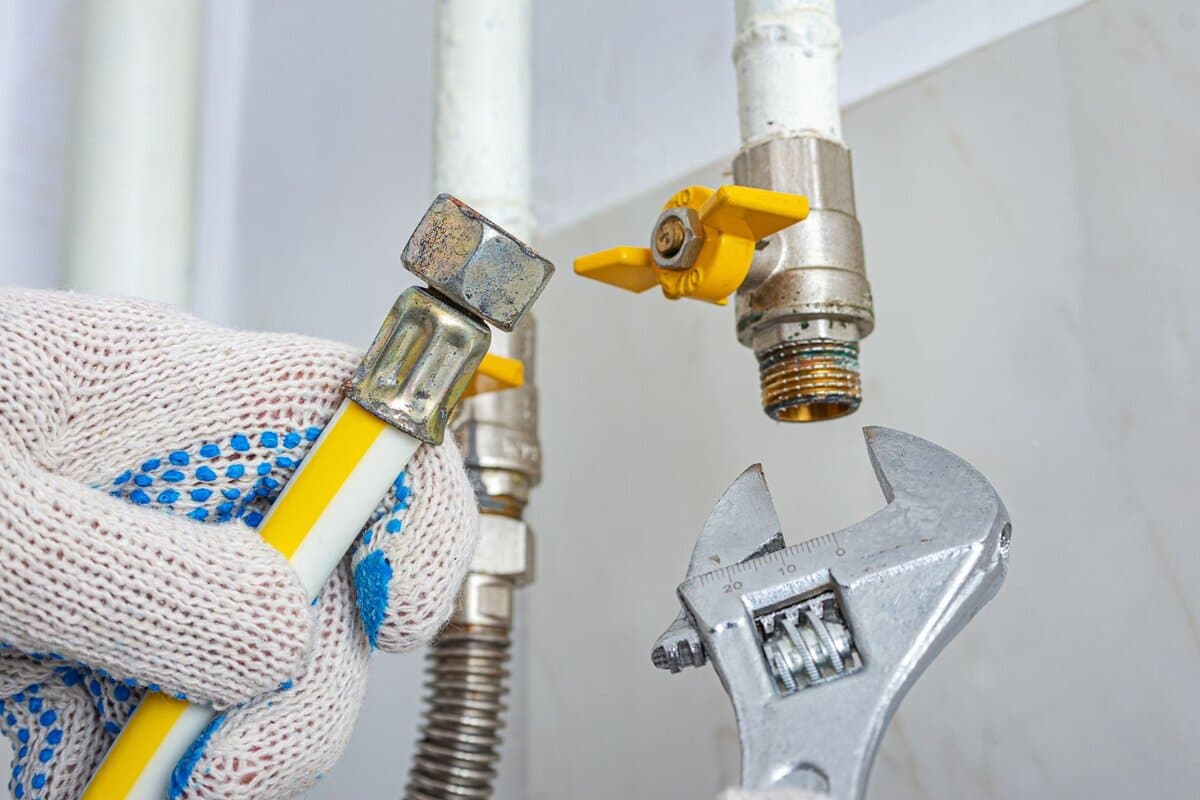
Gas Fitting
Natural gas appliance installation and gas line extensions for complete home gas systems and commercial setups.
Learn More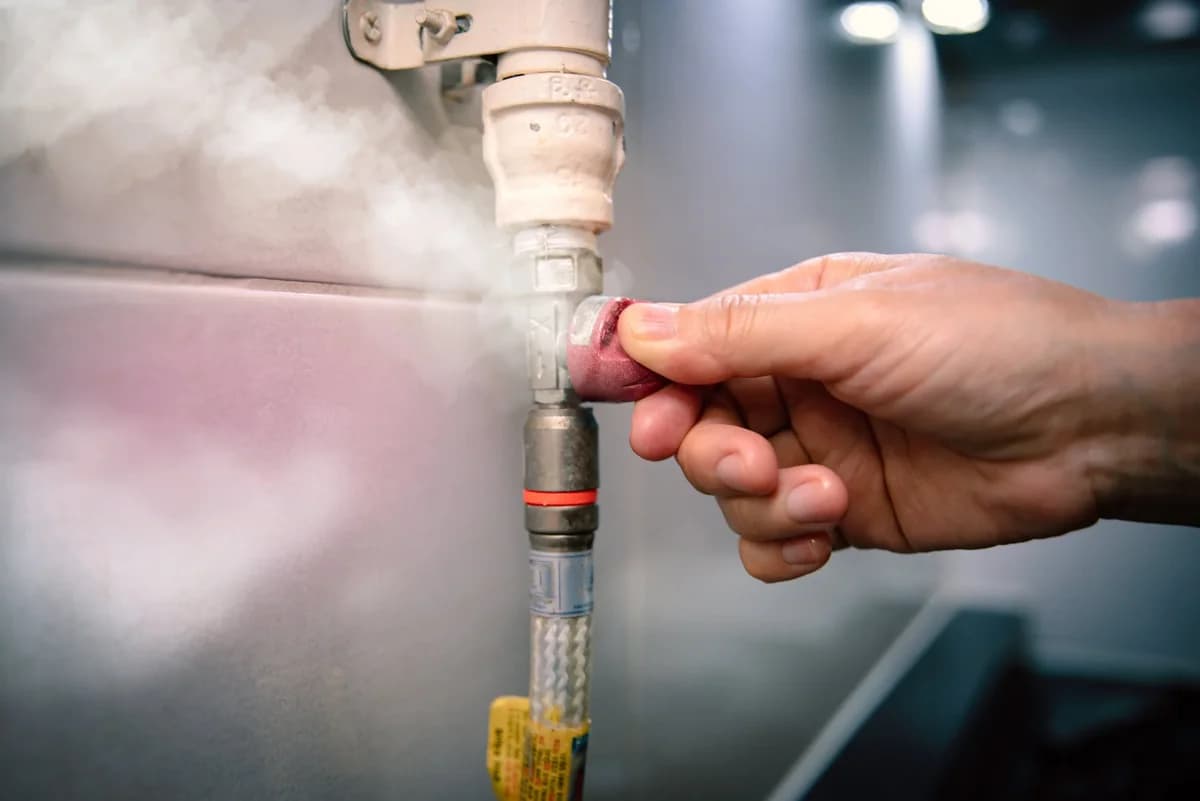
Gas Leak Detection
Professional leak detection with electronic sensors and pressure testing to ensure your LPG system stays safe.
Learn More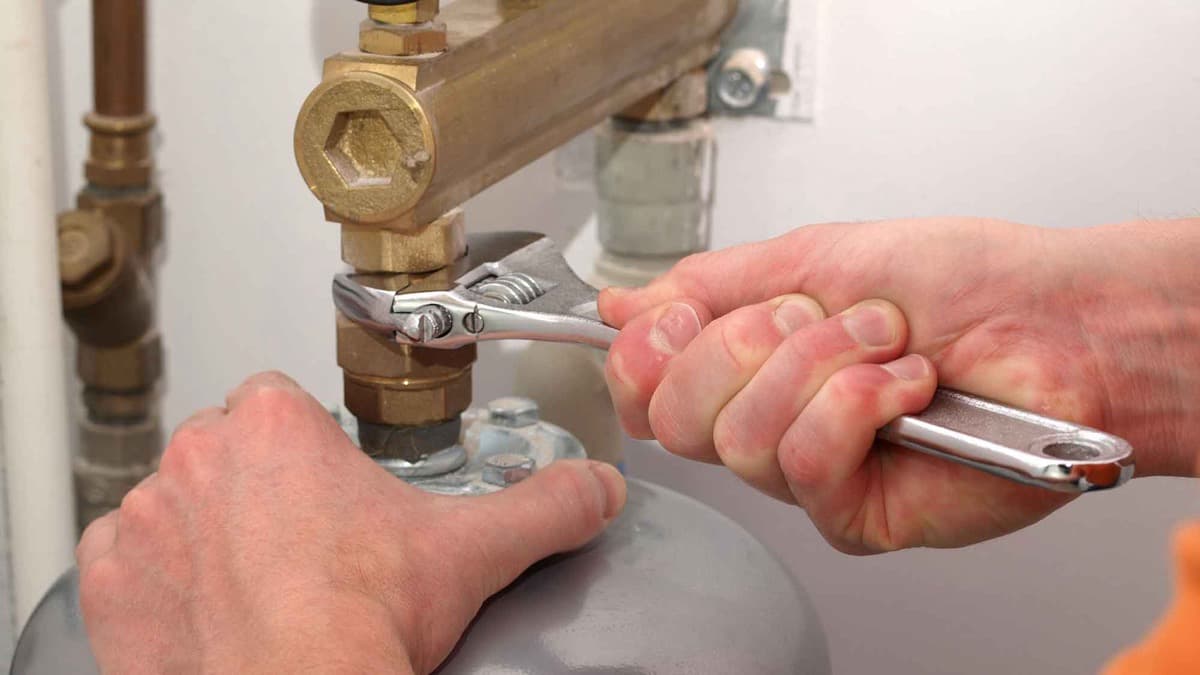
Gas Leak Repairs
24/7 emergency response for gas leaks, appliance failures, and urgent repairs to LPG and natural gas systems.
Learn MoreSydney Clients Trust Our LPG Installations
Hear from homeowners, business owners, and rural property clients who depend on our LPG expertise
"Property has no natural gas access so we installed LPG system for cooking and hot water. Panther Plumbing Group set up 2x45kg cylinders with automatic changeover, ran copper lines to kitchen and laundry, installed all appliances. System works perfectly. Professional LPG installation!"
"Converted our food truck from natural gas to LPG for mobile operation. Panther Plumbing Group installed manifold system, regulators, and connected all kitchen equipment. Passed council inspection first time. Expert commercial LPG work. Highly recommended!"
"Built outdoor entertaining area needing LPG for BBQ and pizza oven. Panther Plumbing Group installed 90kg cylinder with regulator and underground lines. Pressure perfect, no issues in 6 months. Great service from quote to completion!"
Servicing All Sydney Areas
We proudly serve residential and commercial clients across Sydney.
Plan Your LPG Gas Installation
Get expert advice, upfront pricing, and professional LPG system design from Sydney's licensed gas fitters. Whether you need a caravan setup, food truck installation, or rural property conversion—we deliver safe, compliant LPG solutions.

